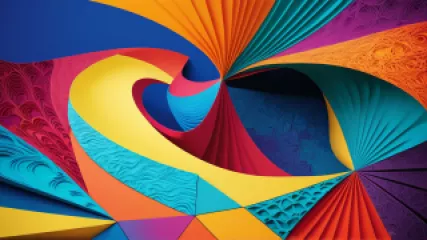Creative Intelligence: Unveiling the Diverse Spectrum of Intellect
Creative Intelligence: Unveiling the Diverse Spectrum of Intellect
In a world where intelligence is often narrowly defined and measured, it's time to challenge the conventional notions and embrace the rich tapestry of creative intelligence. Intelligence is not a single, monolithic construct, but rather a multifaceted and dynamic phenomenon that encompasses a vast array of cognitive abilities and creative capacities. As we delve into the realm of intelligence theories, we must shed light on the diverse spectrum of intellect that transcends the confines of standardized tests and academic performance.
Redefining Intelligence: Beyond the IQ Paradigm
For decades, the concept of intelligence has been largely dominated by the IQ (Intelligence Quotient) paradigm, which primarily focuses on logical-mathematical and linguistic capabilities. While these aspects of intelligence are undoubtedly valuable, they fail to capture the full breadth and depth of human cognitive potential. Creative intelligence, a term that has gained increasing traction in recent years, represents a broader and more inclusive understanding of intellect.
Creative intelligence encompasses a wide range of abilities, including divergent thinking, problem-solving, adaptability, emotional intelligence, and the capacity for original and innovative ideas. Rather than being confined to a single, fixed measure, creative intelligence is a dynamic and multifaceted construct that can manifest in diverse domains, from the arts and sciences to entrepreneurship and social innovation.
The Multidimensional Nature of Intelligence
Pioneering psychologists and researchers have challenged the traditional conceptualization of intelligence, paving the way for a more comprehensive understanding of the human intellect. Howard Gardner's theory of multiple intelligences, for example, identifies eight distinct forms of intelligence, including linguistic, logical-mathematical, spatial, bodily-kinesthetic, musical, interpersonal, intrapersonal, and naturalistic.
This recognition of multiple intelligences underscores the fact that individuals can excel in various cognitive domains, each with its own unique set of strengths and capabilities. Intelligence is not a unitary construct, but rather a mosaic of interconnected and interdependent abilities that manifest in different ways across individuals and contexts.
The Creativity-Intelligence Nexus
At the heart of creative intelligence lies the intricate relationship between creativity and intelligence. While these two concepts are often treated as distinct, they are, in fact, intricately linked and mutually reinforcing. Creativity, defined as the ability to generate novel, unique, and valuable ideas or solutions, is a critical component of intelligence. It allows individuals to think outside the box, challenge existing paradigms, and develop innovative solutions to complex problems.
Conversely, intelligence, in its broader sense, provides the cognitive foundation for creativity to thrive. Individuals with strong intellectual capacities, such as analytical thinking, problem-solving skills, and flexible cognition, are often better equipped to engage in creative endeavors and produce original and transformative ideas.
The Spectrum of Creative Intelligence
Creative intelligence is not a one-size-fits-all construct; it manifests in a diverse spectrum of abilities and talents. From the artistic visionary who paints breathtaking masterpieces to the scientific innovator who revolutionizes our understanding of the natural world, the spectrum of creative intelligence is as vast as the human experience itself.
Within this spectrum, we find individuals who excel in specific domains, such as the musical genius who composes captivating symphonies or the entrepreneurial innovator who disrupts industries with groundbreaking ideas. Others may demonstrate a more generalized creative intelligence, capable of problem-solving and innovative thinking across multiple disciplines.
Cultivating Creative Intelligence
Given the importance of creative intelligence in the 21st century, it is essential to explore ways in which we can nurture and cultivate this multifaceted aspect of human potential. Education systems, workplace environments, and societal structures must evolve to embrace and support the development of creative intelligence, rather than solely focusing on traditional measures of academic performance or technical expertise.
This shift requires a fundamental rethinking of how we approach learning, problem-solving, and personal growth. It calls for educational curricula that foster divergent thinking, encourage experimentation, and provide opportunities for cross-disciplinary collaboration. In the workplace, organizations must cultivate a culture that values and rewards creative problem-solving, adaptability, and the exploration of innovative ideas.
The Power of Creative Intelligence
As we navigate the complexities of the modern world, the power of creative intelligence becomes increasingly vital. In a rapidly changing, interconnected, and often unpredictable global landscape, the ability to think creatively, adapt to new challenges, and generate novel solutions is essential for individuals, communities, and societies to thrive.
From addressing pressing environmental issues to driving technological advancements, from tackling social inequalities to fostering cultural exchange and mutual understanding, the application of creative intelligence is paramount. By embracing the diverse spectrum of intellect and nurturing the creative capacities of all individuals, we can unlock new frontiers of human potential and create a more sustainable, inclusive, and vibrant future.
Conclusion: Embracing the Multifaceted Nature of Intelligence
In conclusion, the journey of understanding and embracing the multifaceted nature of intelligence is a vital pursuit. By expanding our perspective beyond the narrow confines of traditional IQ measures, we can unlock the transformative power of creative intelligence and unleash the boundless potential of the human mind.
As we continue to explore the complex and ever-evolving landscape of intelligence theories, let us celebrate the rich diversity of cognitive abilities, the interplay of creativity and analytical thinking, and the boundless capacity of the human spirit to innovate, adapt, and shape the world around us. The future belongs to those who dare to think differently, who embrace the full spectrum of intellect, and who harness the creative power that lies within each and every one of us.






